Read the new article from u-blox, and get started with your next GPS project.
by
jahnell
February 23, 2021 3:56 pm UTC
1
Favorited
Favorite
1
Our Friends at u-blox have released an article, “Five Trends in GPS: Satellite-based positioning is everywhere; a look back at 2020 offers some insights into how it will shape our future.”
The article delves into the following trends:
- Smaller, faster, more efficient - getting physically smaller, tracking more satellites, and using less power
- Security - from antenna to cloud, implementing solutions to avoid misuse of GPS
- From centimeter to nansecond accuracies - the adoption of high-precision, low-cost technology will accelerate across industries
- New paradigms in e-micromobility - use of GPS in small, light weight vehicles (like scooters and ebikes) will become more advanced and multifunctional
- Immersive experiences and other surprises - innovators will continue to innovate and create/discover completely new applications
SparkFun's Line of GNSS Solutions Using u-blox Modules
Technology is complex. Positioning and wireless communication is extremely complex. To bring the most useful products to market, companies must work together. For several years now, SparkFun has partnered with u-blox to develop innovative positioning, communication, and timing boards. u-blox has a history of pushing the boundaries of innovation and SparkFun makes their technology easier to use and accelerates prototyping and R&D.
In stock
GPS-16481
The SparkFun GPS-RTK-SMA raises the bar for high-precision GPS and is the latest in a line of powerful RTK boards featuring t…
18
In stock
GPS-17285
The SparkFun NEO-M9N GPS Breakout is a high quality GPS board with equally impressive configuration options, now including SM…
8
In stock
GPS-15136
The SparkFun GPS-RTK2 is a powerful breakout for the ZED-F9P module. The ZED-F9P is a top-of-the-line module for GNSS & GPS s…
21
In stock
GPS-15712
The SparkFun NEO-M9N GPS Breakout is a high quality GPS board with equally impressive configuration options.
5
In stock
GPS-15193
The SparkFun ZOE-M8Q GPS Breakout is a high accuracy, miniaturized, GPS board that is perfect for applications that don't pos…
8
In stock
GPS-15210
The SparkFun SAM-M8Q GPS Breakout is a high quality GPS board with equally impressive configuration options.
5
In stock
GPS-15733
The SparkFun NEO-M9N GPS Breakout with on-board chip antenna is a high quality GPS board with equally impressive configuratio…
3
In stock
GPS-15005
The SparkFun GPS-RTK Board is a powerful breakout for the NEO-M8P-2 module from u-blox. The NEO-M8P-2 is a top-of-the-line mo…
7
In stock
GPS-16329
The SparkFun NEO-M9N GPS Breakout is a high quality GPS board with equally impressive configuration options through Dead Reck…
3
Retired
GPS-16475
The SparkFun ZED-F9R GPS-RTK pHAT is a high precision, Automotive Dead Reckoning board with equally impressive configuration …
2
Retired
Retired
GPS-16344
The SparkFun ZED-F9R GPS-RTK Breakout is a high precision, Automotive Dead Reckoning board with equally impressive configurat…
Retired
Retired
SPX-17369
The SparkFun RTK Surveyor is an enclosed and ready to use GNSS receiver for centimeter-level positioning. No programming requ…
4
Retired
Want to Learn More About GPS?
Check out our
"Building a GPS System" resource page.
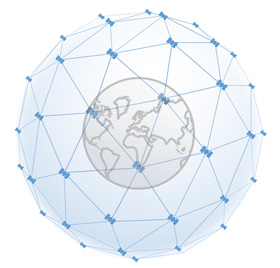
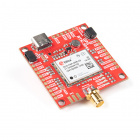
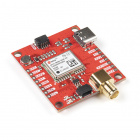
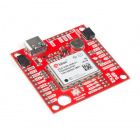
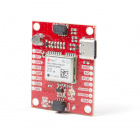
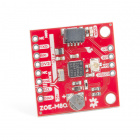
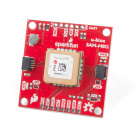
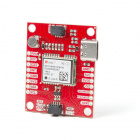
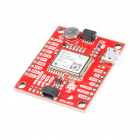
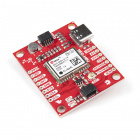
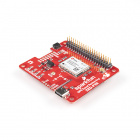
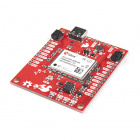

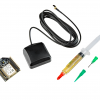
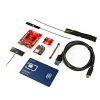
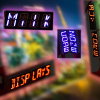





For someone who remembers "selective accuracy" on (civilian) GPS receivers (in the mid-1990s), the progress has been truely amazing. (I also find it amazing that folks like Garmin are able to cram all that map data into a GB or so of memory, and in a format that the GPS receiver can extract it in "real time".) And it will be exciting to see the new developments in GNSS.
However, it seems to me that we need to take a bit of care to not become overly dependant upon GNSS, at least for "life critical" things. The basis for all GNSS systems are satellites, and although I'm sure that the satellites themselves are very heavily "radiation hardened" and "EMP hardened", we have absolutely no control over natural events like the Carrington Event in 1859, which disrupted (wired!) telegraph communications. And this event is far from a unique occurance -- there is evidence that may point to a similar, albeit larger, event around 774 AD. Either of these, or the "near miss" from 2012, or many other things, could disrupt GNSS services for a minimum of several days. (The additional "solar wind" particles alone would likely distort the orbits of the satellites enough to through off system accuracies substantially until the "new" orbits could be accurately measured and almanacs updated.)
This isn't to say that we shouldn't use GNSS, but we need to be aware of the potential hazards.